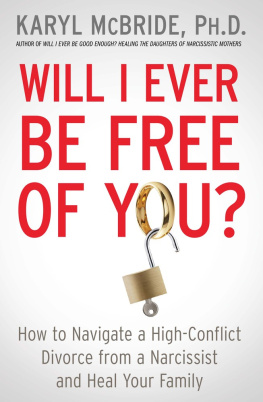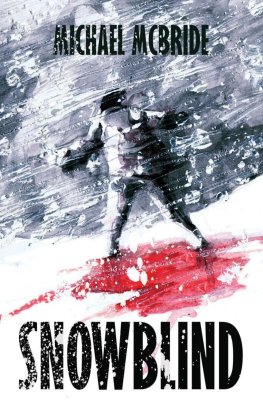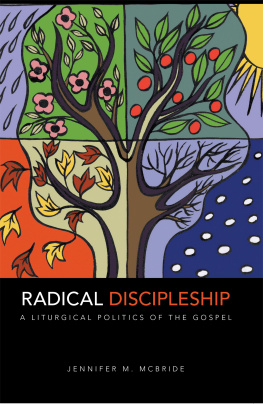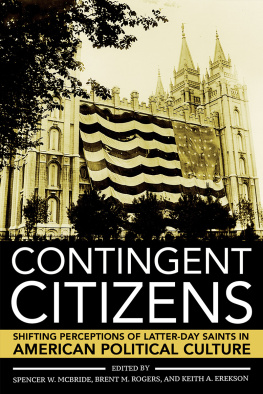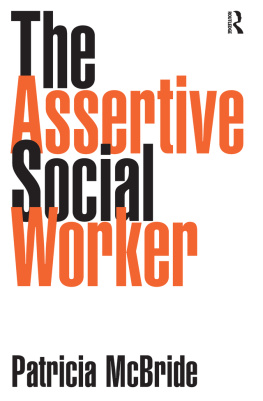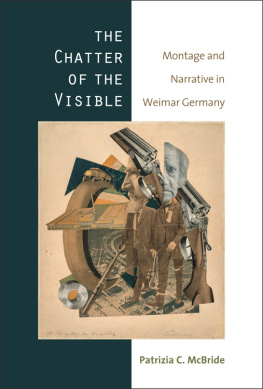McBride - Punishment and Political Order
Here you can read online McBride - Punishment and Political Order full text of the book (entire story) in english for free. Download pdf and epub, get meaning, cover and reviews about this ebook. year: 2018, publisher: University of Michigan Press, genre: Politics. Description of the work, (preface) as well as reviews are available. Best literature library LitArk.com created for fans of good reading and offers a wide selection of genres:
Romance novel
Science fiction
Adventure
Detective
Science
History
Home and family
Prose
Art
Politics
Computer
Non-fiction
Religion
Business
Children
Humor
Choose a favorite category and find really read worthwhile books. Enjoy immersion in the world of imagination, feel the emotions of the characters or learn something new for yourself, make an fascinating discovery.
Punishment and Political Order: summary, description and annotation
We offer to read an annotation, description, summary or preface (depends on what the author of the book "Punishment and Political Order" wrote himself). If you haven't found the necessary information about the book — write in the comments, we will try to find it.
Punishment and Political Order — read online for free the complete book (whole text) full work
Below is the text of the book, divided by pages. System saving the place of the last page read, allows you to conveniently read the book "Punishment and Political Order" online for free, without having to search again every time where you left off. Put a bookmark, and you can go to the page where you finished reading at any time.
Font size:
Interval:
Bookmark:
 Page i Page ii Page iii
Page i Page ii Page iii KEALLY MCBRIDE
THE UNIVERSITY OF MICHIGAN PRESS
Ann Arbor
Copyright by the University of Michigan 2007
All rights reserved
Published in the United States of America by
The University of Michigan Press
Manufactured in the United States of America Printed on acid-free paper
Printed on acid-free paper
2010 2009 2008 4 3 2
No part of this publication may be reproduced, stored in a retrieval system, or transmitted in any form or by any means, electronic, mechanical, or otherwise, without the written permission of the publisher.
A CIP catalog record for this book is available from the British Library.
Library of Congress Cataloging-in-Publication Data
McBride, Keally D.
Punishment and political order / Keally McBride.
p. cm.(Law, meaning, and violence)
Includes bibliographical reference and index.
ISBN-13: 978-0-472-09982-5 (cloth : alk. paper)
ISBN-IO: 0-472-09982-5 (cloth : alk. paper)
ISBN-13: 978-0-472-06982-8 (pbk.: alk. paper)
ISBN-IO: 0-472-06982-9 (pbk. : alk. paper)
1. PunishmentPhilosophy. 2. PunishmentGovernment policy. 3. Social control. 4. Sovereignty. 5. PunishmentGovernment policyUnited States. I. Title.
HV7419.M398 2007
364.601dc22 2006029795
ISBN-13 978-0-472-02317-2 (electronic)
Page vTo John
Page vi Page viiThis project began while I was working with Mary Katzenstein at Cornell University on a John S. McKnight Postdoctoral Fellowship and I became interested in the phenomenon of prison labor. It developed even more at a National Endowment for the Humanities Summer Institute at Amherst College, led by Austin Sarat in the summer of 2002. He was most enthusiastic when I developed the idea for this book, and Jim Reische at the University of Michigan Press also carried me along through the writing process, encouraging me to write plainly whenever possible, having faith that a book can be both smart and pleasurable to readeven one on punishment. The other participants in the punishment seminar were stellar colleagues in every sense of the word, and I would like to thank Valerie Karno, Robert Gordon, Karl Shoemaker, Ted Sasoon, Alysa Rosenthal, Bill Lyons, and Christopher Sturr in particular for helping me begin to think about punishment and political theory and to write the first section of this book. I would also like to thank Law, Politics, and Society for permission to reprint Hitched to the Post here, and the reviewers who helped me to develop that argument.
John Zarobell, Kevin Bundy, Carl Cheeseman, Marie Gottschalk, Nancy Hirschmann, Betsy and Richard McBride, and the anonymous reviewers for the University of Michigan Press read parts of the manuscript and gave me excellent advice and conversation. Marie Gottschalk, The Prison and the Gallows, and Bruce Western, Punishment and Inequality, shared copies of their manuscripts (which have now been released), making it possible for me to benefit from their illuminating work on the American penal system today. Ruth Ost let me teach a seminar on punishment in the Temple University Honors Program, giving me a captive audience that helped immeasurably. My seminars on punishment at the University of Pennsylvania were also lively, helping me to reconceptualize the manuscript significantly.
Page xMy reading groupJeremy Elkins, Steve Salkever, and Christina Beltranhelped me to tackle sovereignty, and Roger Berkowitz staged a well-timed intervention in my thoughts on the subject as well. Andrew Norris assisted my thinking about political order. Rogers Smith welcomed me at the University of Pennsylvania into the intellectual life of a wonderful department and provided the structural support to finish the project, while Valerie Ross encouraged me to think about academic writing very differently.
Though the professional support was crucial for this project, the personal encouragement was tremendous. Telling people that you are writing a book on punishment seems to bring out the nascent comedian in many folks. This good cheer helped counterbalance the at times weighty content of the project, and I am grateful for the love and support provided by my friends and neighbors: Katy, David, Michael, Karen, Steve, Sheila, David, Christine, Meg, Ken, Jane, David, Ben, Carola, Sandra, Gerry, Anne, Casey, Andrea, Mamatha, and Marvin. You picked up my spirits and children, gave me dinner and drinks, and without all of you I couldn't have survived my years dwelling upon punishment. Celeste and Theo asked more questions about it than I really wanted to answer, and they continue to demonstrate that you are never too young to be a philosopher or question the inherent justice of a punishment decreed. John, as always, maintained the quintessential balance between interest in my project and encouragement to think about something else, and he gave me support during my trials and provided the pushes needed to overcome them.
Page 1Though I didn't know it yet, I started writing this book when I moved to Philadelphia, into an apartment that was two blocks away from what appeared to be a medieval castle. The stone walls are dizzyingly highthree or four stories at leastand the front gate, complete with menacing spikes, is flanked by little breaks in the fortress walls that appear to allow shots to be fired from within. The building was Eastern State Penitentiary, the first full-fledged penitentiary in the United States and the object of study by foreign visitors such as Alexis de Tocqueville and Charles Dickens. It was one of the largest and most expensive buildings built in the United States at the time of its completion in 1829, and it takes up eleven acres in the midst of what soon became a lively urban neighborhood. The stone walls are so thick that the expense of tearing it down was enough to deter even the most avid redevelopers.
Today, community groups help provide attractive landscaping around the building, farmer's markets are held in the parking lot, and I even buy my Christmas tree there every year. The colossus is integrated into everyday life. I am reminded of the building's strangeness only by visitors who are both awestruck and confused by the incomprehensible architecture. Were there medieval settlementsin Philadelphia? The expanse of stone was designed to intimidate, and it still succeeds in the task. Yet the fortress has become a familiar part of the landscape, and even its neighbors overlook the intrusive aspect of it. The building personifies state punishment, though in a different way than was intended. The initial recognition may be shockingremember the first time you understood that some people are put in jail, foreverbut then we become accustomed to it. That is, we forget about Page 2 the awesome power until we are forced to confront it through a shocking revelation, its direct intrusion in our lives, or the perspective of outsiders. As someone engaged in the study of politics, it is my central task to help bring a new awareness to these aspects of the political landscape that we take as settled or no longer even notice.
A few months after I moved to Philadelphia, I was asked to help organize a group that would think about how to decrease recidivism in those coming out of Philadelphia's current prison system. It was a task force on reentry and reintegrationwas there any way to bring this population out of exile and back into the community? Ex-prisoners, parole officers, victims' rights groups, prison administrators, district attorneys, and criminologists sat around a table and talked once a month. There was a fundamental inability to decide on the basic story. Prisoners' rights advocates saw reintegration as contingent upon everyone understanding their punishment, their incarceration, as unjust. They could look around them and see that the prisons were full of minority males with little economic opportunity. Their incarceration was a reflection of social injustice as much as their individual crime. Why should they want to reintegrate into a political system that victimizes them and violates its own tenets of equality and justice?
Font size:
Interval:
Bookmark:
Similar books «Punishment and Political Order»
Look at similar books to Punishment and Political Order. We have selected literature similar in name and meaning in the hope of providing readers with more options to find new, interesting, not yet read works.
Discussion, reviews of the book Punishment and Political Order and just readers' own opinions. Leave your comments, write what you think about the work, its meaning or the main characters. Specify what exactly you liked and what you didn't like, and why you think so.



